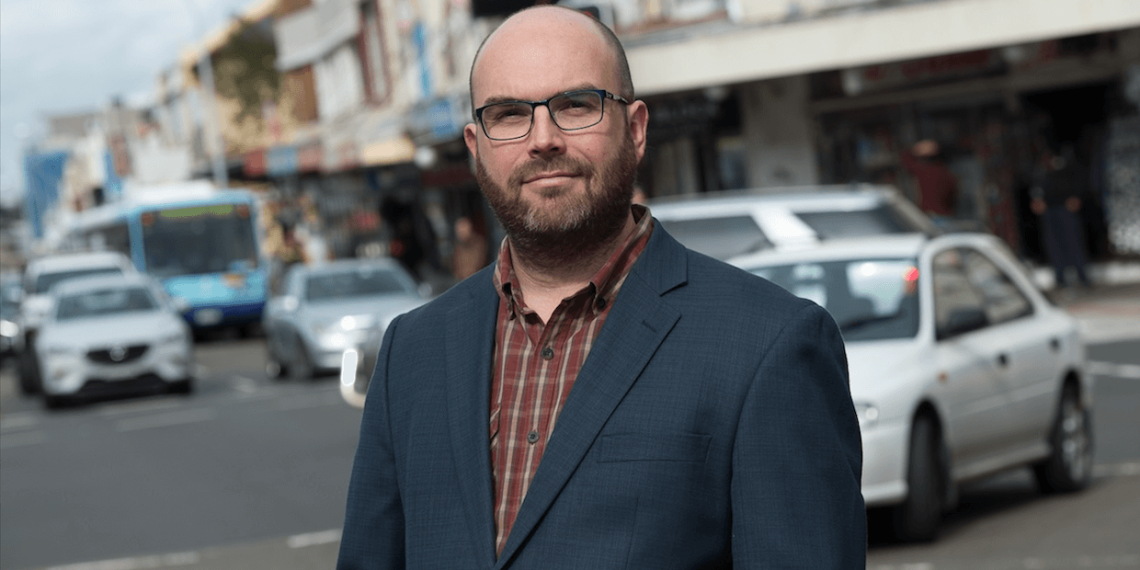In this compelling conversation with ECPS, Dr. Mark Riboldi unpacks how corporate influence and elite career pathways hollow out democratic representation in Australia. From revolving doors in politics to the marginalization of community voices, Dr. Riboldi warns that without transparency and reform, “the closed loop between politics and corporate power” will persist. He also explores party fragmentation, the Greens’ identity struggles, and the risks of technocratic drift. “Boldness needs legitimacy,” he insists, urging progressive parties to pair vision with credibility. Dr. Riboldi ultimately sees Australia’s electoral system as a “stopgap” against populist capture—but not an immunity.
Interview by Selcuk Gultasli
In this incisive interview with the European Center for Populism Studies (ECPS), Dr. Mark Riboldi—a lecturer at the University of Technology Sydney and scholar of political communication and civil society—offers a sobering yet constructive account of the structural pressures undermining democratic vitality in Australia. At the center of his critique lies a sharp diagnosis of state capture: “One of the biggest problems in Australia—and I think it’s probably the same in other liberal Western democracies—is the impact of big business on government,” Dr. Riboldi explains, stressing how revolving-door pathways from student politics to Parliament and then into private sector boardrooms bypass “real work experience and meaningful community engagement.”
This theme threads through his broader reflections on the fragmentation of Australian party politics, the rise of independents, and the populist logic animating both left- and right-wing actors. Dr. Riboldi rejects simplistic narratives that frame emotionally charged political messaging as inherently populist, noting instead that such communication has long been central to movements across the spectrum. Still, he warns that populism becomes dangerous when it feeds on legitimacy gaps and places all faith in personalistic saviors: “Let’s talk about a problem—I will fix it,” he says, paraphrasing the demagogic logic of figures like Donald Trump or Nigel Farage.
Dr. Riboldi’s insights into party dynamics are especially sharp in his discussion of the Greens. He views the party’s struggle between institutional respectability and activist roots not as a liability but as a productive tension: “It helps to keep a party like the Greens connected to their roots and accountable to those roots.” Yet he also cautions that technocratic messaging—as seen in their focus on parliamentary influence and minority government potential—can fall flat, especially when voters crave bold but believable visions for the future. “Boldness needs to be connected to legitimacy,” he insists, adding that the Greens’ record on housing and climate action has earned them the political capital to stake out such positions.
Ultimately, Dr. Riboldi remains cautiously optimistic about Australia’s institutional resilience. Compulsory voting, preferential ballots, and a proportional Senate system form what he calls a “stopgap” against populist insurgency. Nevertheless, his core warning remains clear: unless transparency is enforced and the influence of corporate power curtailed, Australian democracy—like others around the world—risks further erosion from within.
Here is the lightly edited transcript of the interview with Dr. Mark Riboldi.
A Realignment, Not a Populist Break
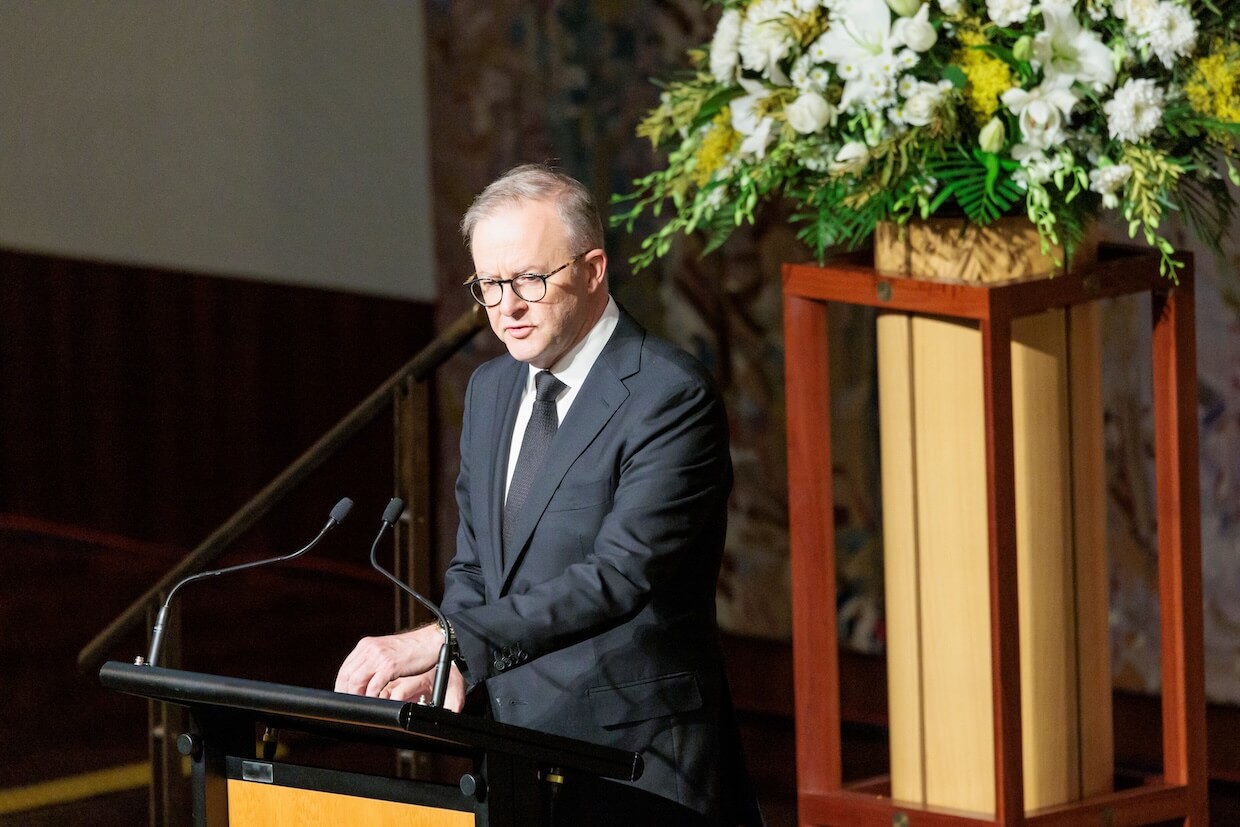
Professor Mark Ribaldo, thank you very much for joining our interview series. Let me start right away with the first question: You’ve written extensively on the fragmentation of party politics in Australia. To what extent do you see the rise of minor parties and independents—especially the Teals and Greens—as indicative of a populist moment or a broader realignment?
Dr. Mark Riboldi: It’s a good question. I should say that I’m not a populist scholar, so I’m not a scholar in populism. So my knowledge of populism literature generally is probably not as in-depth as some of your audience’s.
I think what’s been going on in Australia, probably for the last 50 years or so, is a sense that there’s something wrong with the current system, with the way that politics is working—the two-party system we have in Australia. And there’s a demand for better representation. So that has meant that people have been voting more and more frequently for independent or minor party candidates—or basically non-major party candidates.
Some of the research that I’ve done with some colleagues is showing that that trend away from major party voting is kind of aligning, realigning parts of the left and the right, rather than being more of a kind of a populist break from it. So, I’d probably say it’s more of a broader realignment than anything else.
In your co-authored article, you distinguish ‘party-like independents’ from traditional party politics. Do you see this trend as fostering a new form of populism, or rather as a correction to major-party ossification?
Dr. Mark Riboldi: What we’re talking about with party-like independents—independents operating in a party-like fashion—is a phenomenon in Australia where a central organization called Climate 200 has been collecting funds from various sources to back specific candidates in election campaigns, particularly against Liberal Party candidates. This organization has taken on functions typically associated with political parties, such as centralized fundraising, conducting research, and managing mass communications.
Ordinarily, an independent candidate might only have the resources to campaign within their local seat or engage in a limited range of activities. The existence of Climate 200 as a support vehicle allows these independents to access party-like resources and infrastructure.
So, I see this as a reaction to the major party system—specifically, a response to the right-wing Liberal-National Party in Australia. Climate 200 emerged in reaction to two primary issues: the Coalition’s failure to take meaningful action on climate change, and its inadequate representation of women. Notably, all the Climate 200-backed independents elected in the 2022 federal election were women, and they largely defeated male Liberal-National Party incumbents.
Sometimes You Win Them, Sometimes You Lose Them
How do you interpret the Greens’ recent electoral losses in the lower house within the broader context of Australia’s shifting political cleavages? Was this a rejection of their platform, leadership style, or something more structural like preferential voting patterns and redistributions?
Dr. Mark Riboldi: I think, in terms of the Greens, it’s important to understand that, yes, they lost seats in the lower house—the House of Government—but they maintained the same number of seats in the Senate, the House of Review. They’ve consistently secured two senators per state across the six states for the last three elections. So, the Greens’ Senate vote has been very stable. In contrast, as we saw in the most recent federal election, their position in the lower house has been less secure. The Greens went from holding four seats to just one. If a major party with 80-something seats loses three, it’s not a huge concern. But when you only have four seats, losing three is significant.
The tension for the Greens here is that there’s a big difference between getting a consistent vote in the Senate and winning a lower house seat. In the upper house, with a national vote around 12–13%, you can get those senators elected—as the Greens did. That’s very different from the lower house, where to win a seat consistently in Australia, you probably need a primary vote of over 40%.
So, what happened in the last election was, in part, a correction from the election before, where the Greens won some seats due to the preferential system—which we’ll talk about in a bit. Then, the surge of the left-wing Labor Party and the collapse of the right-wing Liberal Party meant the alignment of the top three candidates in those seats changed order, and so the Greens lost three of their seats. I don’t think it was necessarily a rejection of their platform or leadership style. I think part of it is just that when you have lower house seats, sometimes you win them, and sometimes you lose them.
Democratic Populism Must Be Modeled, Not Just Preached
You’ve emphasized the role of legitimacy and power dynamics in how political actors—especially civil society organisations (CSOs)—mobilize support. How do you see populist rhetoric reshaping public perceptions of legitimacy among CSOs and minor parties?
Dr. Mark Riboldi: It’s a danger when we’re thinking about populist rhetoric and the kinds of messages that appeal—especially the populist messages that resonate with people. Whether it’s in parts of Europe, the UK, the United States, or even Australia, it’s important to recognize that we shouldn’t simply write off those who respond to that rhetoric as anti-democratic or undemocratic. Often, there’s a real response to the political and social conditions people are experiencing—a demand for a greater say.
That said, this demand is definitely exploited by parts of the right. The way figures like Donald Trump, Nigel Farage, or right-wing leaders in Europe talk about democracy and legitimacy tends to be very narrow, even neoliberal. It’s framed as: "Here’s a problem, I will fix it," placing all power in one individual—which we know is dangerous and can lead to autocracy.
I was rereading some notes this afternoon from Chantal Mouffe’s For a Left Populism—probably the one major piece of populism literature I’ve read—where she talks about the need for a form of left-wing populism. One that responds to the same concerns people have: the sense of being disenfranchised, the widening gap between the better-off and the less well-off. The left can respond to that—and as Mouffe suggests, and I would argue, the Greens in Australian politics do this—in ways that expand democracy rather than contract it.
For civil society organizations as well, there’s a crucial role: they need to be exemplars of democratic behavior and democratic activity. Because if CSOs and left-wing minor parties aren’t showing what democratic populism or left populism can look like, people are just going to turn to right-wing organizations instead.
Populists Exploit Gaps—But CSOs Must Defend Democratic Advocacy
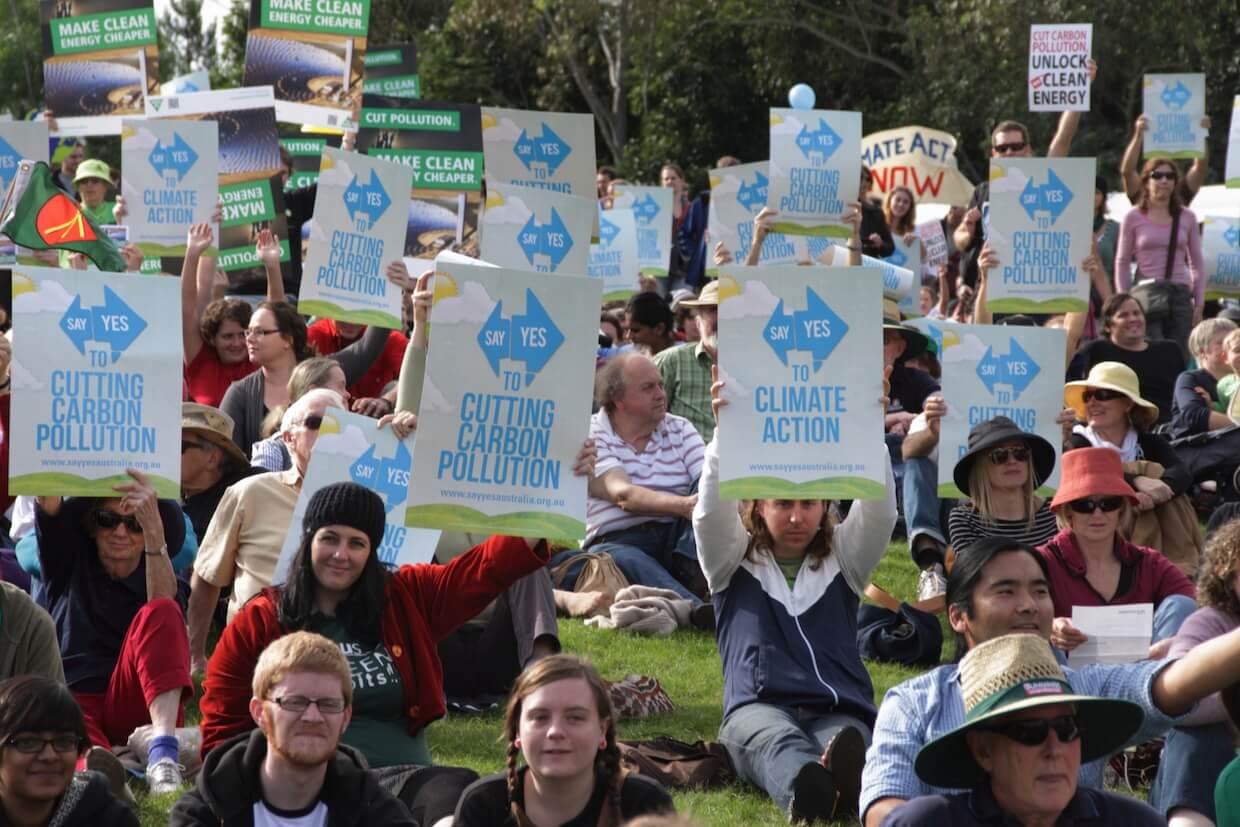
Your typology of CSO activities outlines both service delivery and systemic advocacy. How do you see populist actors either co-opting or challenging these CSO functions, especially during elections?
Dr. Mark Riboldi: That’s a good question. In the most recent election in Australia, a quite populist right-wing figure in the form of a coal baron—Clive Palmer—ran under the Trumpet of Patriots party. He spent millions and millions of dollars on billboards, social media advertising, and I think pretty much everyone in Australia received about four text messages from him during the campaign. His message included quite a few universalist claims like free education or canceling student debt—what we might call socialist concerns that genuinely resonate with people. That’s clearly a response to public concerns, but of course, there was no intention to follow through. And in the end, Trumpet of Patriots actually lost ground in the election.
On the advocacy side, we’ve also seen right-wing governments in Australia work to delegitimize advocacy as a function of civil society organizations and NGOs. Over the last 40–50 years, we’ve had roughly 20–25 years of right-wing governments, and they’ve consistently tried to undermine the ability of these organizations to engage in advocacy. Their argument is essentially, “We give NGOs money, so they should just deliver services and stop speaking out.”
Even left-wing governments, at times, take the attitude that civil society organizations should help them get elected—and then be quiet and let them govern without criticism. So it’s a real challenge. For me, systemic advocacy is a crucial democratic function. Civil society organizations play a vital role in sustaining a pluralist society, ensuring that multiple voices are heard in the political system.
In discussing power distribution within civil society, you raise concerns about homogeneity in the Climate 200 movement. How might this lack of diversity undermine their capacity to challenge right-wing populism and broaden their democratic appeal?
Dr. Mark Riboldi: So the Climate 200 independents in Australia are very middle class, and they’re very white. In Australia’s political spectrum, you might identify five main positions. You have the centre-left Australian Labor Party, the centre-right Liberal-National Coalition, and to the left of Labor, parties like the Greens. On the far-right, you have parties like One Nation—a very populist right-wing movement that, thankfully, has not been particularly electorally successful despite being around for some time. Then, in the middle of all that, you have Climate 200 and the independents they support.
These Climate 200-backed independents are very much centrist, middle-class, and white. I don’t think Climate 200 is positioned to meaningfully challenge right-wing populism. Rather, I see them as representing a realignment within the centre-right of Australian politics. So no, I don’t think they are a challenge to right-wing populism—I think they’re just a soft shift back toward the centre for parts of the Liberal Party’s traditional base.
People Want Vision, Not Parliamentary Machinations
You were critical of Adam Bandt’s leadership being perceived as too ‘insider’ or technocratic. In the context of Australian populism, how important is anti-elitist performance or outsider image, even for progressive candidates?
Dr. Mark Riboldi: I think it’s very important. My criticism of the Greens during the election was more about the lead slogan or the message they had in the campaign. Basically, they pitched around the potential role the Greens could play in a minority government, and that was a lot of the messaging they were putting forward. Even the Climate 200 independents were doing something similar. A lot of polling in the lead-up to the elections showed the potential for a minority government, so both the Greens and Climate 200 were pitching into that.
Late in the campaign, it became reasonably clear that the right-wing National Party wasn’t campaigning effectively, and their vote was collapsing. It became increasingly likely that the Labor Party would reclaim government with a larger majority. As a result, the technocratic message of the Greens didn’t really cut through—or at least didn’t appear to resonate with voters, in my view.
To the substance of the question: I think people are tired of that kind of talk. They don’t want to hear politicians discussing the machinations of Parliament—whether it’s minority government, who’s going to do what, or preferences and who’s going to prefer whom. People want to hear politicians talk about ideas and present a vision for Australia that’s bold yet realistic. So I think it’s a real problem if we don’t have political parties—and if a left-wing movement like the Greens isn’t articulating that vision clearly—because then they’re just falling into that more elitist style of politics.
The Greens’ emphasis on housing and renters’ rights was arguably a populist move, targeting a disenfranchised demographic. Do you think this issue can serve as a long-term populist wedge against both major parties, or was it electorally premature?
Dr. Mark Riboldi: I don’t think it was electorally premature. The Greens in Australia have been campaigning on housing at the state and federal levels for 10 to 15 years, if not a little more. There are places in Australia where there are more renters in electorates than there are homeowners. There’s an increasing demographic of people in Australia who are locked out of the housing market. It’s not just young people—there are people getting older, people around my age, who have been and will be lifelong renters.
Another aspect is that the rental system in Australia is heavily geared towards landlords, and so the power distribution between landlords and renters is very imbalanced. So I think it’s a perfect issue for the Greens and other social democratic institutions to campaign on. The political discourse in Australia for the last three years has been heavily dominated by housing.
The government has invested a lot of money. The Greens were able to negotiate about an extra $3 billion from the government for housing in the last term. But the problems around housing are not going to go away. The price of houses is going up, the price of rents is going up. There are no, as yet, systemic changes to the incentives for people to just buy investment properties and raise the rents again and again.
Emotion Isn’t New—But It Needs to Be Backed by Facts
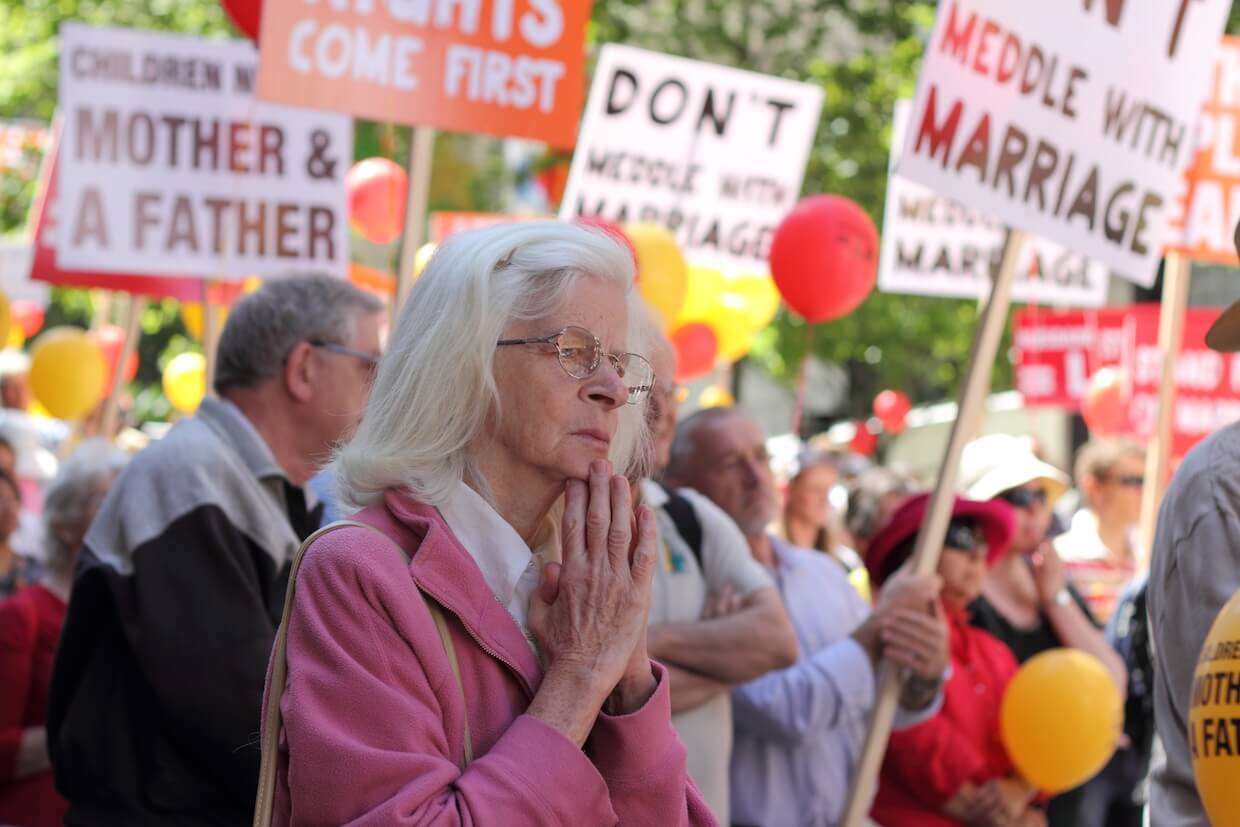
You argue that civil society groups often deploy emotionally charged messaging (e.g. “Truth,” “Stop Dutton”). Is this a sign of populist communication logic seeping into the mainstream left, or a necessary rhetorical strategy in the current media landscape?
Dr. Mark Riboldi: There’s nothing new about emotionally charged messaging in politics—on the left or the right. It’s a very common tool to mobilize supporters, get votes, and prompt people to take action. Emotion is a powerful political tool. I don’t think it’s necessarily tied to some kind of populist communication logic.
If you think about common framing devices used to get people engaged, one key example from the union movement is the "anger, hope, action" frame—which is still widely used today. You communicate something the opponent has done that makes people angry, then offer a sense of hope—saying we can do something about it—and finally, you give them an action: volunteer, protest, take to the streets. That frame is used by both the left and the right.
So no, emotionally charged language isn’t new. In fact, I think one mistake early on—particularly in the climate movement—was assuming that governments make decisions based on evidence. A lot of policy and progressive-minded people have believed that rational arguments alone will win the day. That’s a nice rationalist view, but I don’t think it’s ever truly been the case.
Balanced messaging needs both facts and emotion. The strongest messaging I’ve seen from either the workers’ rights movement or the climate movement in Australia combines solid facts with emotional language, compelling music, and strong visuals to connect with people. Getting people to make decisions is often driven by emotion. So yes, you need emotional rhetoric—it’s just a question of whether you can back it up with facts, or whether, as in the case of some populist figures in various places, you’re just full of shit.
Preferential Voting Acts as a Democratic Stopgap Against Populist Surges
Australia’s preferential voting system has helped both minor parties and independents. Do you think this electoral setup inadvertently creates fertile ground for populist insurgents, or does it actually moderate them compared to first-past-the-post systems?
Dr. Mark Riboldi: I think it’s the latter. Australia’s electoral system—and our system of government more broadly—means that Australia is largely governed from the center. We have compulsory voting, so you’re not just competing to get a small subset of people to vote—everyone votes. We also have preferential voting, which means that votes tend to flow toward one or the other of the major parties.
The third aspect is our proportional upper house. So for me, Australia’s political system functions as a kind of stopgap on populism and right-wing insurgency. We’ve had right-wing populist figures elected in Australia before, but they don’t seem particularly good at staying elected. In our research, we’ve found that many of the One Nation MPs who got elected often quit the party within 12 to 18 months and end up standing as independents. There’s a real fragmentation among the right in Australia—they don’t really have their act together in terms of getting elected, staying elected, and forming a sustained political force.
So while the preferential system might help third-party candidates get elected, it’s different from first-past-the-post systems like in the US or UK, where other voices are often completely locked out. That can suppress pluralism to the point where pressure builds and eventually erupts in some kind of populist insurgency. In contrast, Australia’s system allows for those moments of political breakthrough—a sudden rise of a particular voice in a community—but it also contains built-in checks and balances. So, for me, it functions as a pretty effective stopgap against populist insurgency.
Reclaiming Democracy Means Breaking the Corporate-Politics Conveyor Belt

Given the increasing number of independents and minor party MPs, what reforms—if any—do you believe are necessary to maintain the integrity and functionality of parliamentary democracy in Australia?
Dr. Mark Riboldi: One of the biggest problems in Australia—and I think it’s probably the same in other liberal Western democracies—is the impact of big business on government and the broader issue of state capture. Some of the reforms that have been proposed in Australia include making ministers’ diaries and politicians’ diaries transparent, so the public can see exactly who is meeting with whom.
Another reform area involves strengthening laws around the declaration of interests—what politicians might own or have investments in—and addressing the issue of the “conveyor belt” from Parliament directly into high-paying jobs in industry. This same conveyor belt also often runs from student politics into Parliament and then into lucrative private sector roles. It’s a trajectory that tends to skip real work experience and meaningful community engagement.
So, trying to reclaim government for the community—by increasing transparency and breaking that closed loop between politics and corporate power—is a really important step for maintaining the integrity of parliamentary democracy.
Do you think the Greens face a strategic identity crisis: trying to be a party of responsible governance while also holding onto their roots in protest and radical critique? Is this tension a barrier to populist appeal and a strength in a polarized political climate?
Dr. Mark Riboldi: I think this tension is a good thing. It’s a healthy and important tension for a social democratic party on the left to have. It revolves around the connection that parties like the Greens maintain with the social movements they emerged from—whether that’s the environmental movement, the peace and nonviolence movements, or socialist movements in different parts of the country. These are deep, activist roots. On the other side of the tension are the elected parliamentarians, their staff, and those working to gain office and participate in running the country and forming government.
That’s a tension because some people might argue that the Greens should always stay a protest party—that their role is to represent activists and not be compromised by being in Parliament. And others might say, “Well, what’s the point of being in Parliament if you can’t actually go on to form government at some point?” So I think that tension is really useful. It helps to keep a party like the Greens connected to their roots and accountable to those roots.
The Australian Labor Party—one of the more successful labor parties in the world—still has very strong connections to the union movement, and the union movement is still able to discipline the Labor Party. That’s a tension too. The Labor Party can’t structurally drift away from its base in the way that the Democrats have in the US, for example. It’s just not structurally possible at this point.
So, those tensions are really important in parties—particularly in left-wing parties. It makes it harder for them to have a populist appeal, especially the older and more successful they become. As parties become more institutionalized, people want to take fewer risks because they’re interested in keeping their jobs or getting more people elected. But if you’ve got that tension—whether it’s from environmental movements, socialist movements, workers’ rights movements, peace and nonviolence movements—then you’ve got voices that can appeal to people in a populist way that speaks to their genuine democratic concerns for better representation.
Boldness Without Believability Risks Falling Flat
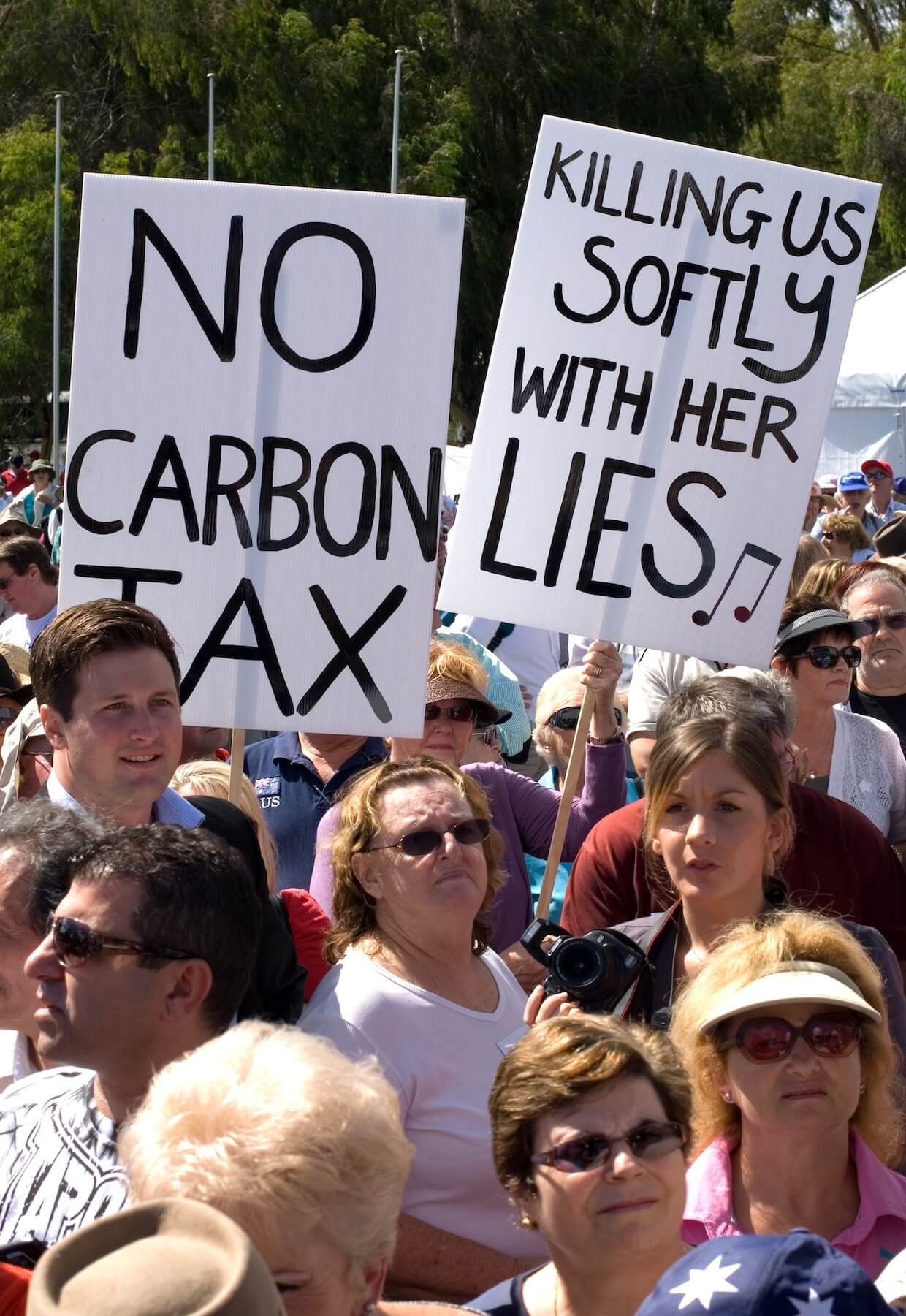
Bob Brown called for greater boldness from the Greens. In your view, what would ‘boldness’ actually look like in the current political climate? Is there a risk of boldness tipping into populist demagoguery?
Dr. Mark Riboldi: If boldness is not coupled with a sense of realism and believability—like I was mentioning before—then it risks falling flat. Clive Palmer and the Trumpet of Patriots were out there during the election saying they were going to give everyone free education, completely wipe out student debts, and do a whole lot of things. Some of it sounded quite good, but people didn’t believe them. People didn’t have faith that they would actually do those things.
So, boldness needs to be accompanied by legitimacy, and that’s something a party like the Greens does have. People can believe what the Greens are talking about. The Greens have been in Parliament now for well over a decade. They can point to reforms they’ve championed or contributed to—including the creation of a National Integrity Commission, action on climate change, and, as I mentioned before, securing extra funding for housing. People have seen the Greens deliver, so I think that has bought them, for lack of a better word, a degree of political capital they can spend on advocating for bold policies.
In that sense, I agree with Bob Brown. Boldness is about selling a compelling vision of what Australia’s future could be. I read an article today about the new Greens leadership where a former leader was saying, “We didn’t have new policies; we were just talking about the same things we’ve been talking about for 10 years.” And he said that as though he was proud of it. But for me, maybe that’s not the kind of message people wanted to hear. Perhaps they needed something different, especially when so much of the campaign was focused on the prospect of minority government.
So yes, boldness is important—but it needs to be grounded in legitimacy and an ability to achieve tangible outcomes in Parliament. The Greens have that, through their balance of power in the Senate and their track record of working in and around government.
Australia’s Institutions Also Act as a Stopgap Against Populist Surges
Finally, with the continuing fragmentation of both the left and right in Australian politics, do you foresee a populist surge from the right akin to the US or Europe—or is the Australian political system too institutionally embedded for such movements to dominate?
Dr. Mark Riboldi: This might be wishful thinking, but I do think that Australia has some structural resistance to those kinds of populist surges. That’s not to say there aren’t right-wing populist movements in Australia. I’ve mentioned Pauline Hanson’s One Nation a couple of times. Like other places, we’ve had protest movements around anti-vaxxers, and there are nationalist movements in parts of Australia that have jumped onto those kinds of issues. So we do have an active right-wing nationalist populist presence in Australia.
But I do think our electoral system is a bit of a stopgap for that. We have a proportional Upper House, and the government rarely has control of both houses of Parliament in Australia. Usually, the government is formed with control over the lower house—the House of Government—but in the Senate, they typically have to negotiate, similar to the US system, where passing bills requires working with different coalitions of senators. That serves as a useful check on populism and prevents one party from gaining total control and running rampant over the system.
I also think the preferential voting system helps mitigate that risk. And compulsory voting means people are more engaged in the system—the political pitch in Australia isn’t just to narrow bands of partisan voters, but to the broader political center. All of those things aren’t an antidote per se, but they act as a kind of stopgap. Populist surges in Australia might break in from outside the Parliament, but I don’t think they get a foothold or gain as much institutional power as they do in other places.

